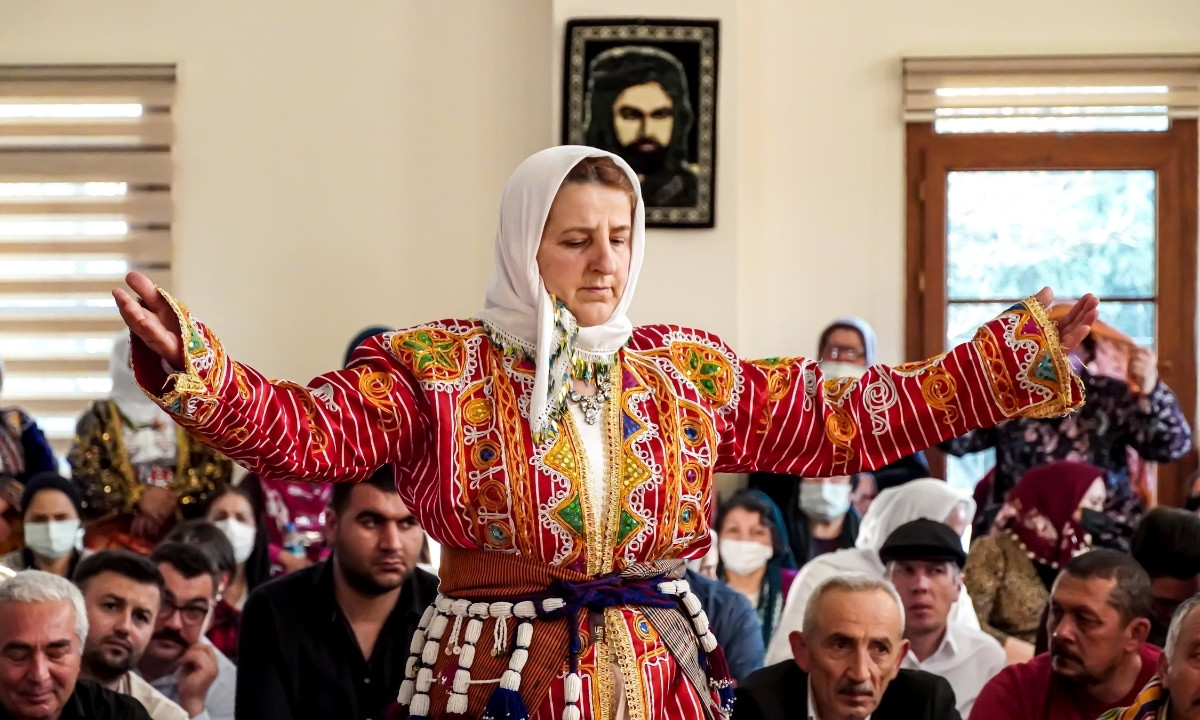
Alevism is a unique branch of Islam with rich traditions and beliefs. Originating in Turkey, it blends elements of Shia Islam, Sufism, and local customs. Alevis emphasize love, respect, and equality, making their practices distinct. They celebrate rituals like the Cem ceremony, which fosters community and spiritual growth. Unlike mainstream Islam, Alevis don't follow the five daily prayers or fast during Ramadan. Instead, they observe the Muharram fast, honoring the martyrdom of Imam Hussein. Alevism values music and poetry, often using them in worship. Understanding these 30 facts about Alevism will offer a deeper appreciation of this fascinating faith.
Origins and History
Alevism is a fascinating and complex belief system with deep historical roots. Let's dive into some intriguing facts about its origins and history.
- Alevism traces its roots to the 7th century, emerging from the Shia branch of Islam.
- The name "Alevi" comes from Ali, the cousin and son-in-law of Prophet Muhammad.
- Alevism incorporates elements of pre-Islamic Turkish shamanism, Sufism, and Zoroastrianism.
- The belief system has been influenced by various cultures and religions over centuries, making it a rich tapestry of traditions.
- Alevis faced persecution during the Ottoman Empire, leading to a culture of secrecy and resilience.
Beliefs and Practices
Alevism is not just a religion but a way of life, encompassing unique beliefs and practices that set it apart.
- Alevis believe in the concept of "God, Muhammad, Ali" as a trinity.
- They emphasize the importance of love, respect, and equality among all people.
- Alevis do not follow the Five Pillars of Islam strictly, focusing more on spiritual purity and moral conduct.
- Cem ceremonies are central to Alevi worship, involving music, dance, and poetry.
- Alevis practice "Musahiplik," a form of spiritual brotherhood, where two families support each other throughout life.
Cultural Contributions
Alevis have made significant contributions to art, music, and literature, enriching the cultural landscape.
- Alevi music, known as "Deyiş," often features the bağlama, a traditional stringed instrument.
- Many famous Turkish poets and musicians, like Pir Sultan Abdal, were Alevis.
- The Alevi tradition of storytelling has preserved historical events and moral lessons for generations.
- Alevis celebrate the festival of "Hızır," honoring the prophet Khidr, who is believed to bring good fortune.
- The "Ashura" commemoration is a significant event, marking the martyrdom of Imam Hussein, Ali's son.
Social Structure and Community
The Alevi community is known for its strong social bonds and communal support systems.
- Alevis often live in close-knit communities, fostering a sense of belonging and mutual aid.
- The "Dede" or spiritual leader plays a crucial role in guiding the community and resolving disputes.
- Women hold a relatively equal status in Alevi society, participating actively in religious and social activities.
- Education and knowledge are highly valued, with many Alevis pursuing higher education and intellectual pursuits.
- Alevis have established numerous cultural associations and foundations to preserve and promote their heritage.
Modern-Day Challenges
Despite their rich history and contributions, Alevis face several challenges in the contemporary world.
- Alevis often struggle for recognition and equal rights in predominantly Sunni Muslim countries.
- Discrimination and prejudice against Alevis persist in various forms, including social and political marginalization.
- Efforts to gain official recognition of Alevi places of worship, known as "Cemevis," continue to face obstacles.
- The Alevi diaspora, particularly in Europe, works to maintain their cultural identity while integrating into new societies.
- Modern technology and social media have become tools for Alevis to connect, share their culture, and advocate for their rights.
Notable Alevi Figures
Throughout history, many notable figures have emerged from the Alevi community, leaving a lasting impact.
- Hacı Bektaş Veli, a 13th-century mystic, is considered one of the founding figures of Alevism.
- Pir Sultan Abdal, a 16th-century poet and musician, is celebrated for his contributions to Alevi culture.
- Seyyid Riza, a 20th-century Alevi leader, played a significant role in the Dersim Rebellion against the Turkish government.
- Aziz Nesin, a renowned Turkish writer and humorist, was an outspoken advocate for Alevi rights.
- İsmail Beşikçi, a sociologist and writer, has extensively researched and written about the Alevi community and their struggles.
Final Thoughts on Alevi Culture
Alevi culture is rich with history, traditions, and unique practices. From their inclusive religious beliefs to their vibrant festivals, Alevis contribute significantly to the cultural mosaic. Their emphasis on equality, respect for nature, and community values sets them apart. Understanding these aspects helps appreciate their role in the broader cultural landscape.
Alevism's roots in Sufism and its distinct rituals offer a fascinating glimpse into a lesser-known yet impactful tradition. Their music, poetry, and communal gatherings reflect a deep sense of spirituality and togetherness. By learning about Alevis, we gain insight into a community that values harmony, respect, and cultural diversity.
Exploring Alevi culture enriches our understanding of the world's diverse traditions. It reminds us of the importance of preserving and respecting cultural heritage. So, next time you hear about Alevis, you'll know there's much more beneath the surface.
Was this page helpful?
Our commitment to delivering trustworthy and engaging content is at the heart of what we do. Each fact on our site is contributed by real users like you, bringing a wealth of diverse insights and information. To ensure the highest standards of accuracy and reliability, our dedicated editors meticulously review each submission. This process guarantees that the facts we share are not only fascinating but also credible. Trust in our commitment to quality and authenticity as you explore and learn with us.
